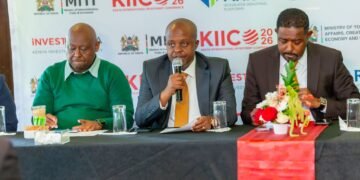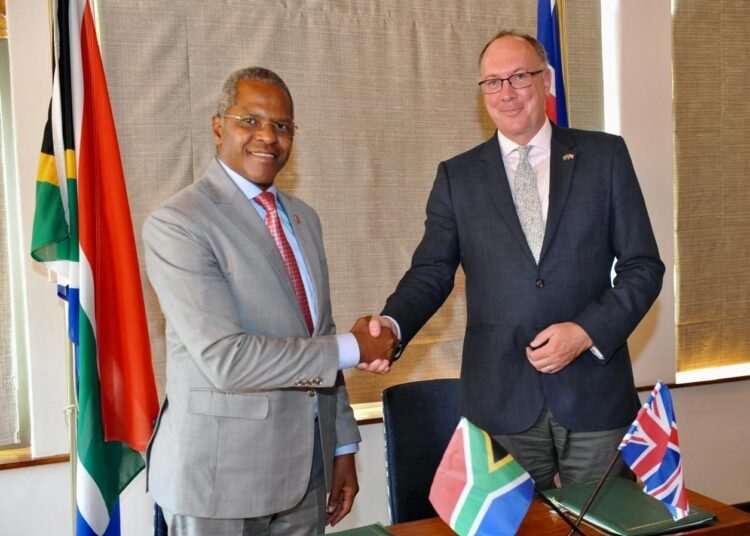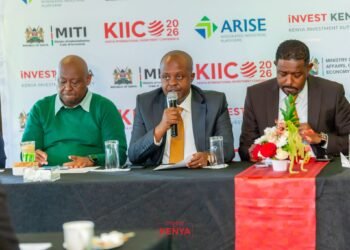South Africa and the United Kingdom have signed a Memorandum of Understanding (MoU) aimed at enhancing climate-resilient local economic development in South Africa.
The agreement was formalized , during a high-level meeting between the Minister of Cooperative Governance and Traditional Affairs (CoGTA), Hon. Velenkosini Hlabisa, and the British High Commissioner to South Africa, Antony Phillipson, in Pretoria.
As part of the agreement, the UK’s Foreign, Commonwealth & Development Office (FCDO) will provide technical assistance to ten municipalities across five provinces—Eastern Cape, Gauteng, KwaZulu-Natal, Limpopo, and Mpumalanga—through a three-year program (2024-2027). The initiative aims to support South Africa’s green recovery, promote sustainable growth, and strengthen institutional development by addressing investment planning, area-based development, service delivery, and economic diversification.
The ten municipalities set to benefit from this initiative include Mogale City, Emfuleni, Newcastle, Ray Nkonyeni, Alfred Duma, Polokwane, Thulamela, Mbombela, Steve Tshwete, and King Sabatha Dalindyebo.

Minister Hlabisa emphasized the importance of technical partnerships in aiding distressed municipalities and stimulating local economic growth. The MoU establishes a framework for collaboration, knowledge-sharing, and program exchange between institutions in both countries.

ALSO READ: IMF BACKS NIGERIA’S SINGLE WINDOW TRADE PROJECT
Beyond the MoU, discussions also covered South Africa’s upcoming G20 Summit. The British High Commissioner expressed the UK’s full support for South Africa’s leadership role in the global forum, reaffirming confidence in the country’s ability to successfully host the event. He also reiterated the UK’s commitment to the Disaster Risk Working Group, emphasizing the importance of global cooperation in disaster risk reduction and resilience-building.
Minister Hlabisa further highlighted CoGTA’s role in South Africa’s energy transition, calling for greater collaboration between the government, private sector, and citizens to ensure inclusive governance and sustainable economic growth.






























































